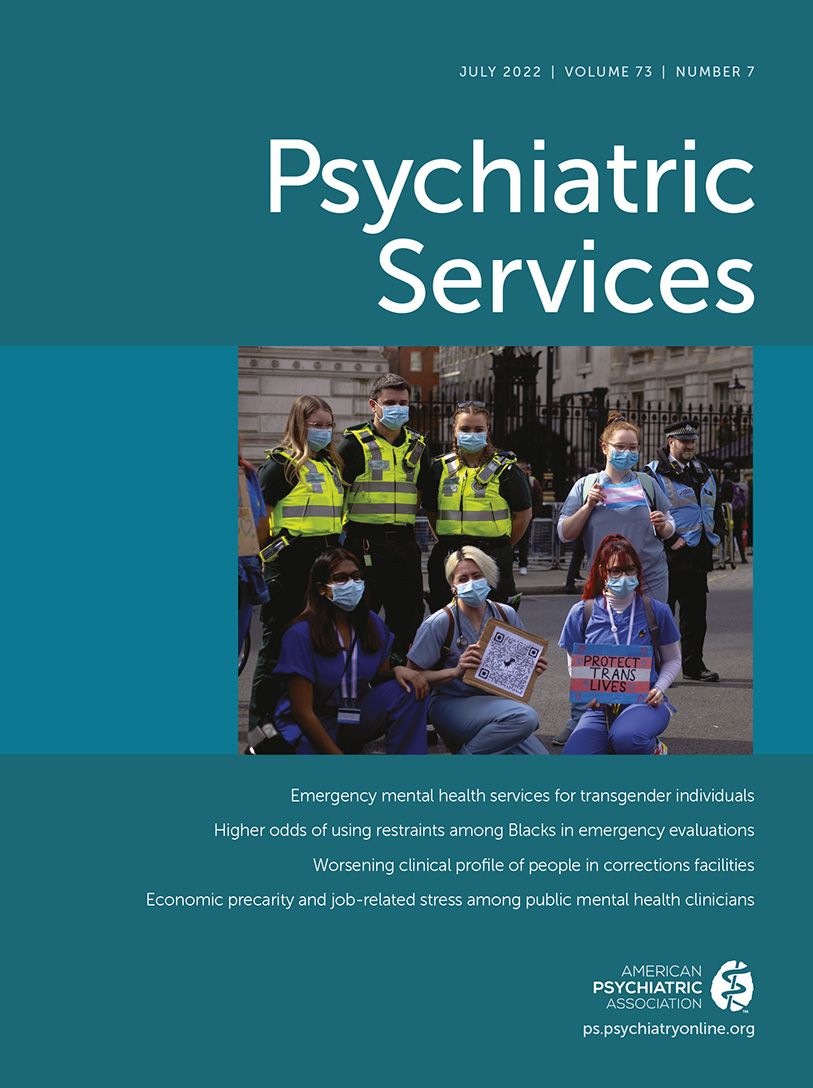Economic Precarity, Financial Strain, and Job-Related Stress Among Philadelphia’s Public Mental Health Clinicians
Abstract
Objective:
Efforts to improve mental health treatment delivery come at a time of rising inequality and cuts or insufficient increases to mental health funding. Public mental health clinicians face increased demands, experience economic stress, and treat underresourced patients disproportionately burdened by trauma. The authors sought to understand clinicians’ current economic and psychological conditions and the relationship of these conditions to the delivery of an evidence-based intervention (EBI) designed to treat posttraumatic stress disorder among youths.
Methods:
In July 2020, 49 public mental health clinicians from 16 Philadelphia clinics who were trained in an EBI, trauma-focused cognitive-behavioral therapy (TF-CBT), were surveyed by e-mail. Respondents reported on their economic precarity, financial strain, burnout, secondary traumatic stress (i.e., the stress response associated with caring for people exposed to trauma), and TF-CBT use. Associations between clinicians’ job-related stressors and their use of TF-CBT were examined with mixed models. Content coding was used to organize clinicians’ open-ended responses to questions regarding financial strain related to the COVID-19 pandemic.
Results:
Clinicians’ economic precarity, financial strain, and job-related stress were high; 37% of clinicians were independent contractors, 44% of whom wanted a salaried position. Of 37 clinicians with education debt, 38% reported owing ≥$100,000. In the past year, 29% of clinicians reported lack of personal mental health care because of cost, and 22% met the cutoff for experiencing secondary traumatic stress symptoms. Education debt was negatively associated with use of TF-CBT (p<0.001).
Conclusions:
The stress of providing care in underresourced clinical settings may interfere with efforts to integrate scientific evidence into mental health care.



